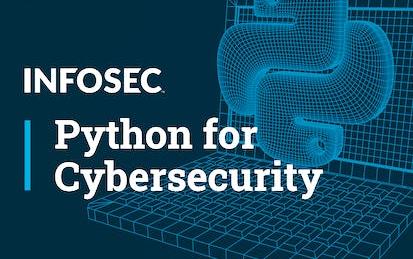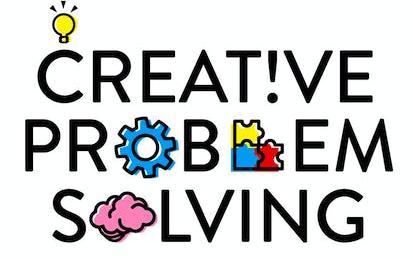

Our Courses

Java Data Access - SQL Primer
This course will introduce the student to the basic concepts of SQL for interaction with Relational Databases. It will illustrate basic SQL statements to create and query tables, leverage table relationships through joins and subqueries, insert and update table rows. It is, however, only intended to cover the basics needed in order for the student to progress onto the Java Database Connectivity (JDBC) and Jakarta Persistence (JPA) courses in the Data Access Specialization.
-
Course by

-
 Self Paced
Self Paced
-
 9 hours
9 hours
-
 English
English

Containerization Using Docker
Welcome to "Containerization using Docker". In this guided project you will learn how to use Docker to create a customised image of your application using Dockerfiles, enable data persistence and will also learn various methods to share your Docker images.
-
Course by

-
 Self Paced
Self Paced
-
 3 hours
3 hours
-
 English
English

Being Assertive with Emotional Intelligence
This course is primarily aimed at people working in a business setting that want to feel more confident in their communication at all levels inside and outside of the organisation. The course will provide you with the knowledge, skills and confidence to become more assertive, taking control of your life in the process. Your assertiveness is your ability to express your feelings, beliefs, and thoughts and defend your rights in a non-destructive way.
-
Course by

-
 Self Paced
Self Paced
-
 3 hours
3 hours
-
 English
English

Reality Bites: Introduction to metaphysics
Speculative metaphysics is challenging, but this course will whet your appetite for it, because it explains fundamental metaphysical problems and views in terms of what you can find in your kitchen and what happens in it when you cook and enjoy food.
-
Course by

-
 Self Paced
Self Paced
-
 9 hours
9 hours
-
 English
English

Jakarta Persistence (JPA)
This course takes the student through a variety of labs exploring the interaction between Java Object Domain Models and Relational Database Tables, this is becoming the standard approach for database access in Java Applications. The course will illustrate how using meta data annotations, you can map domain objects to database tables, and class properties to columns in those tables for CRUD operations. The student will use numerous Query strategies to retrieve data from a database and consume the data in their applications with minimal effort.
-
Course by

-
 Self Paced
Self Paced
-
 13 hours
13 hours
-
 English
English

Organizational innovation and creativity
This management course focuses on the innovation process by presenting students with methodologies for problem solving and innovation that require research, persistence, and agility. Students will be encouraged to: • Synthesize existing ideas, images, concepts, and skill sets in an original way • Embrace ambiguity • Support divergent thinking and risk taking This course will help you become an effective innovation team leader, take on a role as an innovation executive within a large corporation, or provide entrepreneurial activity.
-
Course by

-
 Self Paced
Self Paced
-
 27 hours
27 hours
-
 English
English

Enterprise Java Beans (EJBs) and the Jakarta Persistence API (JPA)
The EJB architecture was the first component-based development model for Java EE specification. It consists of three main components; enterprise beans (EJBs), the EJB container, and the Java application server. In this course students will develop EJBs to run it run inside an EJB container, that is running on a Java EE compliant application server. Students will see that EJB Components enables you to build scalable and accessible enterprise applications
-
Course by

-
 Self Paced
Self Paced
-
 17 hours
17 hours
-
 English
English

Spring Data Repositories
This course is aimed at students wishing to learn how Java interacts with databases in a modern framework. The course uses the very popular Spring Boot Framework, with Micro services, as a setting for our database interactions using Java Persistence Framework (JPA) and Spring Data Repositories to abstract away JPA. Students will then learn how to expose Repositories as Rest Web services in their own right using Hypermedia as the Engine of Application State or HATEAOS concepts.
-
Course by

-
 Self Paced
Self Paced
-
 10 hours
10 hours
-
 English
English

Implement Polyglot Persistence Using SQL and NoSQL Databases
Have you ever wondered what happens to the registration details after you click on the submit button or to the order details once you press the confirm order button when you try to access any website? From where do you think, the details of the product catalogue are fetched to be displayed on the browser? All dynamic or interactive applications should be able to store the details provided by the user and retrieve them when requested. Most websites require a database.
-
Course by

-
 Self Paced
Self Paced
-
 13 hours
13 hours
-
 English
English

Introduction to Self-Determination Theory: An approach to motivation, development and wellness
Self-determination theory (SDT) is an empirically based theory of motivation and psychological development that is especially focused on the basic psychological needs that promote high quality motivation and wellness, and how they are supported in social contexts. SDT details how the styles and strategies of motivators such as parents, teachers, coaches, managers, and health-care professionals can promote or undermine engagement and the positive consequences that follow from it.
-
Course by

-
 Self Paced
Self Paced
-
 22 hours
22 hours
-
 English
English

Trading Algorithms
This course covers two of the seven trading strategies that work in emerging markets. The seven include strategies based on momentum, momentum crashes, price reversal, persistence of earnings, quality of earnings, underlying business growth, behavioral biases and textual analysis of business reports about the company. In the first part of the course, you will learn how to read an academic paper. What parts to pay attention to and what parts to skim through will be discussed here.
-
Course by

-
 Self Paced
Self Paced
-
 13 hours
13 hours
-
 English
English

Intro to Operating Systems 4: Persistence
Learn the inner workings of operating systems without installing anything! This course is designed for learners who are looking to maximize performance by understanding how operating systems work at a fundamental level. The modules in this course cover input and output, directories, file systems, data integrity and protection, and distributed systems. To allow for a truly hands-on, self-paced learning experience, this course is video-free.
-
Course by

-
 Self Paced
Self Paced
-
 11 hours
11 hours
-
 English
English

Android App Development
This Specialization enables learners to successfully apply core Java programming languages features & software patterns needed to develop maintainable mobile apps comprised of core Android components, as well as fundamental Java I/O & persistence mechanisms. The Capstone project will integrate the material from throughout the Specialization to exercise and assess the ability of learners to create an interesting Android app by applying knowledge and skills learned in previous MOOCs, including Java programming features, Android Studio tools, Android Activity components, Material Design,
-
Course by

-
 Self Paced
Self Paced
-
 English
English

Resilience for Everyone
By the end of the specialization, you will be able to: Identify and solve your stress and time management challenges. Develop a growth mindset and persistence in the face of challenges. Develop positive self-talk and mindfulness habits to exercise a more productive, thriving outlook. Demonstrate empathy while listening to others, leading and reflecting on oneself and one’s actions.
-
Course by

-
 Self Paced
Self Paced
-
 English
English

Execution, persistence, privilege escalation and evasion
This course is a continuation of Python for Cybersecurity. The topics covered are execution, persistence, privilege escalation and evasion.
-
Course by

-
 Self Paced
Self Paced
-
 4 hours
4 hours
-
 English
English

Swift 5 iOS Application Developer
This program is intended for anyone who wants to learn how to develop Apps using Swift and iOS. Through four courses, you will learn topics beginning with the absolute basics and ending with selling your apps on the app store. This program provides the skills you'll need to advance your programming career and seek employment in Swift and iOS application development. Throughout this hands-on program, you'll have the opportunity to practice key job skills. You'll learn about the Swift language and how to code iOS applications.
-
Course by

-
 Self Paced
Self Paced
-
 English
English

Creative Problem Solving
This course deals directly with your ability for creativity which is a critical skill in any field. It focuses on divergent thinking, the ability to develop multiple ideas and concepts to solve problems. Through a series of creativity building exercises, short lectures, and readings, learners develop both an understanding of creativity and increase their own ability. This course will help you understand the role of creativity and innovation in your own work and in other disciplines.
-
Course by

-
 Self Paced
Self Paced
-
 14 hours
14 hours
-
 English
English

Cracking the Creativity Code: Discovering Ideas
Skill at discovering new ideas, and delivering them, may be one of the most important practical job skills, in today’s and tomorrow’s job market. Creativity is an acquired skill, one that improves with practice. This course aims to empower individuals who believe they have lost their innate creativity, because they, their employers or teachers prefer the three R's: replication, repetition and rote, to innovation. We show how to re-ignite rusty creative powers.
-
Course by

-
 Self Paced
Self Paced
-
 12 hours
12 hours
-
 English
English



